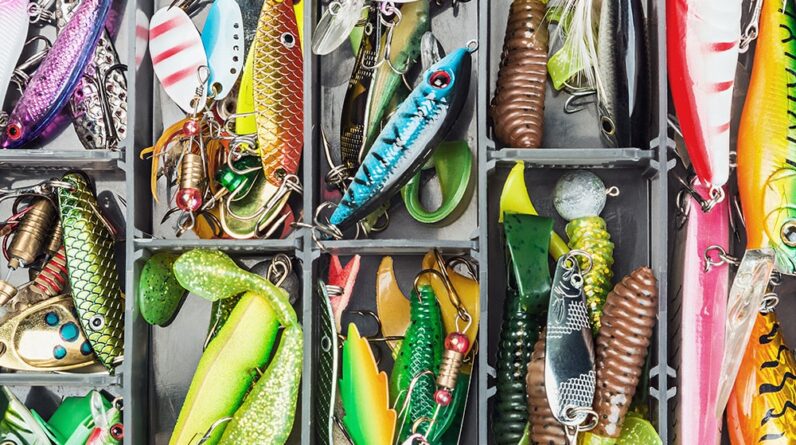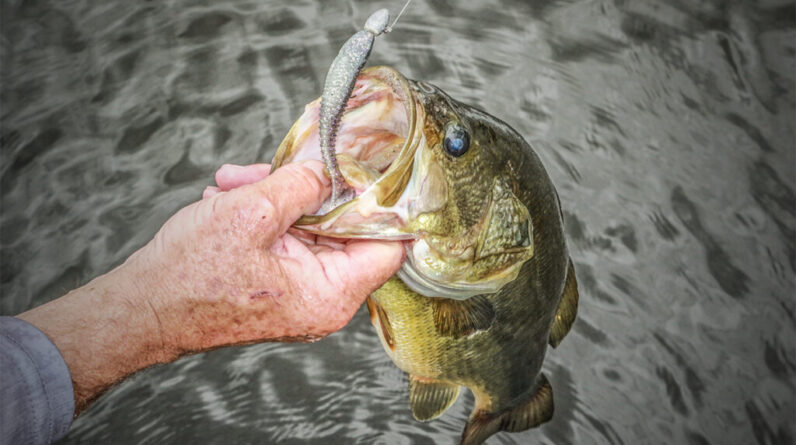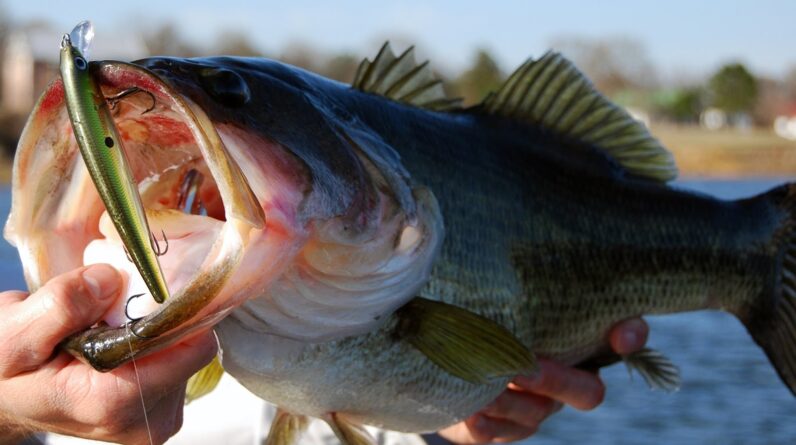Bass fishing is an exciting and rewarding pursuit, but success often depends on knowing the best times to target these elusive fish. Bass are known for their cunning behavior and can be selective about when they feed. To improve your bass fishing game, understanding the optimal fishing times is crucial. In this comprehensive guide, we’ll explore the factors that influence the best times to catch bass and offer valuable Bass Fishing tips to help you reel in more trophy catches. For an extensive range of bass fishing gear and additional tips, visit cheerfulfisherman.com.
The Quest for Bass: A Thrilling Pursuit
Before we dive into the best fishing times for bass, let’s appreciate what makes this species such a sought-after target for anglers.
About Bass Fish
Bass is a collective term for several species of freshwater fish, with largemouth and smallmouth bass being the most popular among anglers. These fish are known for their cunning and powerful strikes, offering a thrilling challenge to anyone who seeks to catch them.
The Strategy
Bass fishing isn’t just about casting your line and hoping for a strike; it’s a strategic endeavor. Understanding the behavior and feeding habits of bass is key to success.
Factors Influencing the Best Fishing Times
Several factors can significantly impact the best times to catch bass. Here are some of the key considerations:
1. Water Temperature
Bass are cold-blooded creatures, and their activity levels are closely tied to water temperature. As a general rule, bass becomes more active as water temperatures rise.
Best Time: During the warmer months of spring, summer, and early fall, bass tend to be more active and feed aggressively.
2. Time of Day
The time of day can make a significant difference in your bass fishing success. Bass have specific feeding patterns that can vary.
Best Time:
- Dawn and Dusk: Bass are often most active during the low-light periods of early morning and late afternoon.
- Night Fishing: In some cases, night fishing can be highly productive as bass may venture into shallower waters under the cover of darkness.
3. Weather Conditions
Weather conditions play a crucial role in bass behavior. Changes in barometric pressure, temperature, and cloud cover can influence their feeding habits.
Best Time:
- Overcast Days: Bass often become more active during cloudy or overcast days, as they feel less exposed.
- Stable Conditions: Bass tend to be more predictable and willing to feed when weather conditions remain stable.
4. Moon Phase
The moon’s phases can impact bass activity, primarily during the spawning season. The moon can influence the water’s movement and the timing of a bass’s reproductive cycle.
Best Time:
- Full Moon: Some anglers believe that bass are more active during the full moon, while others prefer the new moon phase. Experiment to see which works best for you.
5. Water Clarity
Water clarity affects how bass perceive their environment and potential prey. In clear water, the bass may be more cautious.
Best Time:
- Low Light: Early morning and late afternoon are ideal for bass fishing in clear water, as the low light provides cover for your activities.
Bass Fishing Tips for Optimal Success
To make the most of the best fishing times for bass, consider these valuable tips:
1. Research Local Conditions
Get to know the specific conditions in your chosen fishing area. Local knowledge, including water temperature trends and feeding patterns, can be invaluable.
2. Use the Right Lures
Select lures and bait that match the prevailing conditions. Experiment with various lures to see which ones are most effective.
3. Practice Patience
Bass can be cautious and may require repeated presentations before striking. Don’t get discouraged; persistence pays off.
4. Learn to “Feel” the Bass
Practice detecting subtle strikes and movements in your line. The more you can “feel” the bass, the better your hook-setting accuracy.
Frequently Asked Questions (FAQs)
1. What is the best water temperature for bass fishing?
- Bass become more active as water temperatures rise, making the warmer months of spring, summer, and early fall ideal for bass fishing.
2. Can I catch bass during the winter?
- While bass activity decreases in colder water, it’s still possible to catch them during the winter. Try using slow-moving lures and focus on deeper areas.
3. What’s the best time for night fishing for bass?
- Night fishing can be productive during the warmer months, particularly during summer. Focus on shallow waters near structure or cover.
4. What lures work best for bass fishing?
- The choice of lures depends on the conditions and the behavior of the bass. Crankbaits, soft plastics, topwater lures, and jigs are all effective choices.
Conclusion
Bass fishing is a thrilling endeavor, and understanding the best times to catch bass can significantly improve your success rate. Factors like water temperature, time of day, weather conditions, moon phases, and water clarity all play a role in determining the ideal fishing times. Combine this knowledge with effective techniques and patience, and you’ll be well on your way to reeling in more bass. Explore cheerfulfisherman.com for a wide range of bass fishing gear and additional Bass Fishing tips to enhance your angling experience.







1 Comment
Comments are closed.